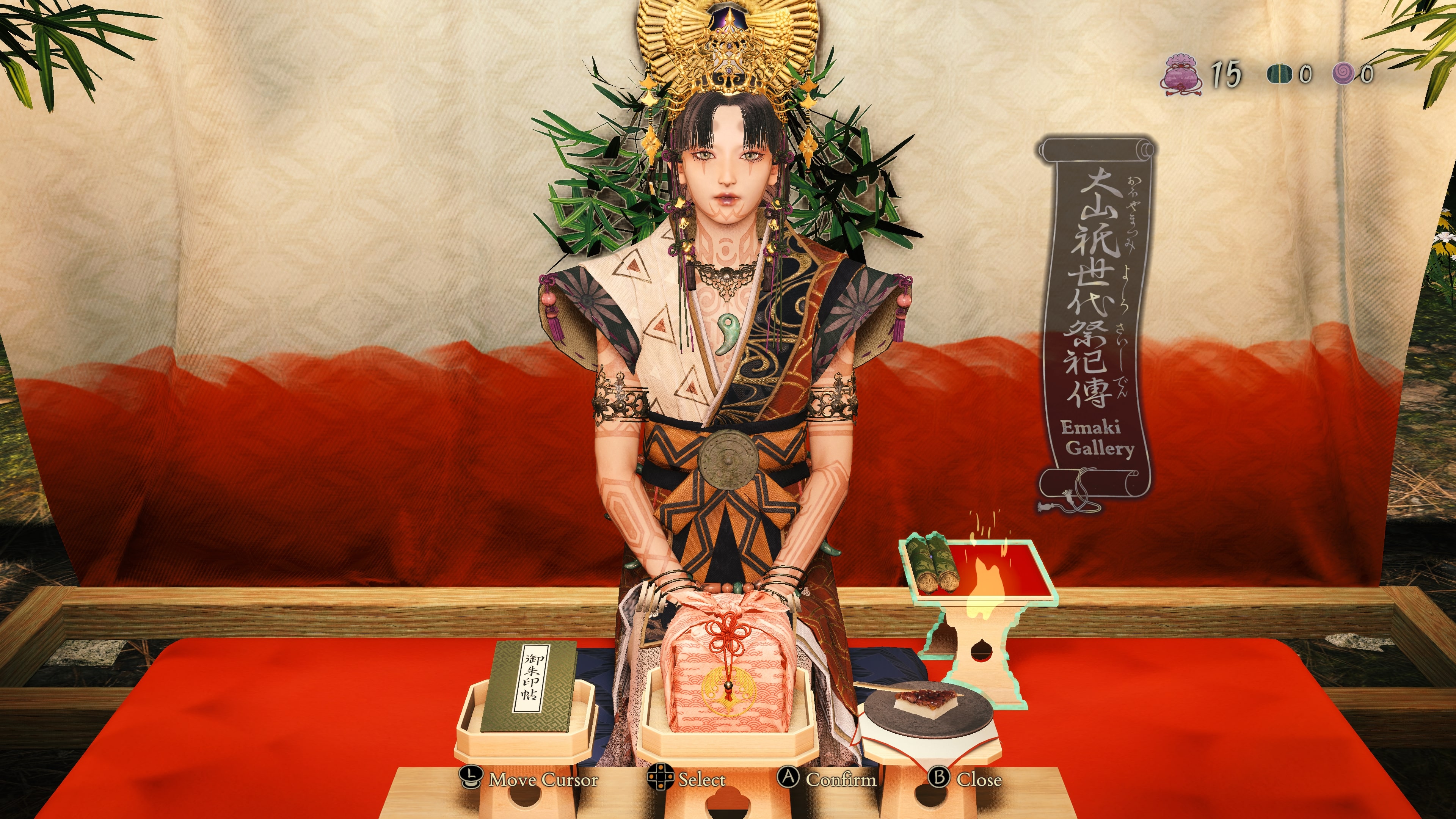Unlike many other publishers and developers in this current console generation, Capcom has managed to provide a diverse slate of games across many genres and supported platforms. When it wasn’t pumping out yearly remakes or mainline entries in the Resident Evil series, the developer has been consistently building Monster Hunter as one of the best cooperative online multiplayer experiences in gaming. That doesn’t even count the lessons the company learned from the disastrous Street Fighter 5 launch and its effect on last year’s phenomenal Street Fighter 6. Despite all of this, Capcom still develops new IPs ranging from the still mysterious Pragmata to last year’s Exoprimal.
Around this time last year, the game Kunitsu-Gami: Path of the Goddess was unveiled, drawing comparisons to beloved fantasy games from Capcom like the long-dormant Onimusha series and the cult-favorite Okami.
Scheduled for release on July 19, 2024 for PlayStation 4, PlayStation 5 Xbox Series X, Xbox Series S, Xbox One, and PC, we got the chance to try it out at Summer Games Fest Play Days before its launch next month. Our experience suggests that Kunitsu-Gami: Path of the Goddess, with its mix of action, tower defense and real-time strategy elements, could potentially become one of Capcom’s next big franchises.
Enter Kunitsu-Gami
In Kunitsu-Gami: Path of the Goddess, players step into the role of Soh, a protector assigned the critical task of safeguarding Yoshiro, a divine maiden. Yoshiro’s mission is to rid villages of corruption by demonic forces called Seethe and restore peace to the legendary Mt. Kafuku. This central narrative promises a deep dive into themes of purification and protection, appealing to fans of rich, immersive storylines.
Stylistically, many of the movements and combat are inspired by an ancient Japanese ceremonial dance called kagura while the demons derive from traditional yokai folklore. Though not a technical showpiece considering the RE Engine-powered game is for current and past generation consoles, it successfully leans on its art direction instead. The colors are bold and lush while giving off a cool fantasy appearance. Meanwhile, the animation in both in-game and cutscenes are really beautifully done in terms of the ceremonial dance sequences that happen.
Gameplay of Kunitsu-Gami: Path of the Goddess unfolds in two distinct phases. During the day, players explore villages as Soh where the goal is to rescue inhabitants to assist during the night segments, Earn souls to spend on transforming said civilian villagers or create a pathway for Yoshiro to purify the corrupted Torii gates and set up defenses for the night battles against demons. The daytime portion lasted less than ten minutes it felt but did a great job of building tension for the fight against the demons where players are charged with protecting Yoshiro who has her own life bar as well. Once that’s depleted, it’s game over. It also doesn’t help that Yoshiro dances slowly toward the gates once Soh creates the path which purposefully adds to the tension.

At night, there’s a dynamic shift as the malevolent Seethes emerge from the Torii gate to make sure Yoshiro doesn’t purify it. This is where all that daytime preparation comes into play. Players can turn freed villagers into various tower defense units such as a basic axeman for attacking, an archer for long distances and flying Seethes and another that’ll freeze enemies in place for a while. Capcom representatives mentioned that there are even more types available as players progress.
All of these villagers can be moved around the field in real-time by hitting the shoulder button, selecting different villagers and using the right thumbstick to move them around the battlefield. In a nice touch, roles can be switched on the fly if enough souls are earned. As a nice touch, there are quick prompts that allow Soh to command soldiers to rush the gate or rally around Yoshiro.
Though the combat won’t remind anyone of Devil May Cry or Okami, Soh has a well-rounded amount of attacks that make combat pretty fun as you segue between soldier and general. Soh has two attack buttons for light and heavy, a guard and a special move once a meter is built up. One of the most interesting things is that if Soh’s health is depleted, he turns into a spirit form that can’t do anything for a significant amount of time until he re-materializes. The danger in that comes from the possibility of leaving Yoshiro unprotected. Thankfully, he can still command troops while in spirit mode.
Once Yoshiro makes it close enough to the gate, Soh assists her in purifying the gate which ends in a cool choreographed sequence. Between missions, players can upgrade Soh and soldiers’ attributes alongside other customizations including one revolving around Japanese desserts. The demo did a fine job of introducing the many layers and succeed at making the multiple genres the game takes on entertaining enough during our time.
With its engaging mix of action and strategy, layered with culturally rich storytelling and aesthetics, Kunitsu-Gami: Path of the Goddess stands poised to carve out its own niche in gaming, potentially marking another milestone for Capcom’s creative prowess.
